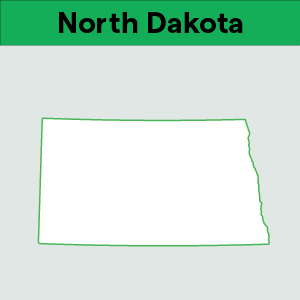Colorado’s marketplace facilitator sales tax law, explained
by October 15, 2024
The state of Colorado requires marketplaces to collect sales tax on behalf of sellers on online marketplaces like Amazon or Walmart.
This means that if you sell on a platform like Amazon, then Amazon will collect sales tax from your Colorado buyers on your behalf, and remit it to the state.
But as usual, there are always a few wrinkles here when it comes to e-commerce sales tax.
This post will explain what online sellers need to know about the Colorado marketplace facilitator law, and answer your frequently asked questions.
Overview of the Colorado marketplace facilitator law
Colorado’s marketplace facilitator law states that marketplace facilitators are required to start collecting and remitting sales taxes into the state beginning on October 1, 2019, if they met the threshold during the 2018 calendar year.
If the retail sales made or facilitated by the marketplace facilitator in Colorado in the previous year were less than $100,000, then the marketplace facilitator must begin collecting sales tax if its retail sales into Colorado during the current calendar year exceed $100,000. If the retail sales made or facilitated by the marketplace facilitator in Colorado in the previous year exceed $100,000, the marketplace facilitator is subject to all of the requirements discussed in the following sections for the entire calendar year.
Quick facts about the Colorado marketplace facilitator law
- Effective date: October 1, 2019
- Threshold: Marketplace facilitators are required to start collecting and remitting sales taxes into the state beginning on October 1, 2019, if they met the threshold during the 2018 calendar year.
- State law information: Read the full text of the Colorado marketplace facilitator law
- Marketplaces that have adopted this law:
- Amazon (effective October 1, 2019)
- eBay (effective October 1, 2019)
- Etsy (effective October 1, 2019)
- Walmart (effective October 1, 2019)
What exactly is a marketplace facilitator in Colorado?
Colorado law defines marketplace facilitators as an individual or legal entity that operates a marketplace.
A marketplace facilitator is subject to the requirements detailed in this publication only if it performs all three of the following functions:
- 1) The marketplace facilitator contracts with one or more marketplace sellers to facilitate the marketplace sellers’ sales for a fee, a commission, or other consideration.
- 2) The marketplace facilitator directly or indirectly transmits or otherwise communicates the offer or acceptance between a purchaser and the marketplace seller.
- 3) The marketplace facilitator directly or indirectly, including through agreements or arrangements with third parties, collects payment from the purchaser and transmits it to the marketplace seller.
Anyone who exclusively provides internet advertising services or lists products for sale and who does not perform the three functions listed above is not considered a marketplace facilitator, according to Colorado law.
Does this mean I can stop collecting Colorado sales tax?
A retailer who makes sales only through a marketplace may be exempt from sales tax licensing, collection, and filing requirements if the marketplace facilitator collects all applicable state and state-administered local sales taxes on the retailer’s behalf.
However, if you make sales in Colorado through other outlets besides the marketplace sales, you may need to continue to collect sales tax in Colorado. Let’s look at a couple of common scenarios for businesses who have sales tax nexus in Colorado.
Example #1: You only make sales on online marketplaces.
In this example, you only sell on Amazon and eBay. Because Amazon and eBay are both now collecting sales tax from buyers on your behalf, you are not required to collect sales tax from your buyers. (However, you may still be required to file periodic sales tax returns. See “Does this mean I can cancel my Colorado sales tax permit?” below.)
Example #2: You sell on online marketplaces and your own online store and/or brick and mortar store.
In this case, you’d still be required to collect sales tax from buyers who purchase from you through your own online store (for example, via your BigCommerce or Shopify store). And you would still be required to collect sales tax from your brick and mortar customers.
Marketplace facilitator laws only cover marketplaces. The state still requires that merchants collect sales tax from buyers via sales channels where the marketplace facilitator laws do not apply.
Does this mean I can cancel my Colorado sales tax permit?
No. Per the state, a marketplace facilitator making or facilitating retail sales of tangible personal property, commodities and taxable service in Colorado must first obtain a retail sales tax license.
Do I still need to file a Colorado sales tax return?
If you are registered to collect sales tax in Colorado (i.e. you have an active Colorado sales tax permit) then the state still requires that you file sales tax returns.
If you only make sales via marketplaces, and all of your marketplaces collect sales tax from buyers on your behalf, then you may only be required to file a “zero return.” (This is a return showing that you do not have any sales tax to remit to the state.)
If you no longer have any sales tax to remit to the state of Colorado, we recommend checking directly with the state to determine if you can cancel your sales tax registration.
Be cautious here. If you are registered for a sales tax permit and do not file, the state can assess penalties even though you don’t have any sales tax to remit! We have, unfortunately, talked to too many sellers who have found this out the hard way when a tax penalty bill arrives.
What do I do with any Colorado sales tax I have already collected?
If you have already collected Colorado sales tax from buyers, it is vital that you remit that amount to the state. The only way to get in serious criminal trouble in sales tax is to collect sales tax from buyers on the state’s behalf but keep it in your own pocket.
Example:
Let’s say you sell on Amazon and Colorado requires you to file and remit sales tax quarterly. Though Amazon began collecting sales tax on your behalf on October 1, if you have any sales tax in your bank account that you collected from Q3 2019, you will still need to remit that to Colorado Department of Revenue or face a penalty.
Does TaxJar handle this for me?
Yes.
TaxJar AutoFile handles Colorado sales tax automatically
TaxJar AutoFile automatically compiles your sales tax data the way the state of Colorado wants it filed. For example, many states, Colorado included, want sellers to break down their sales tax collected interstate (sales originating in Colorado sent to another state) and intrastate (sales made from Colorado to Colorado.)
If a marketplace has collected sales tax on your behalf, TaxJar reports that directly to the state so that the state is aware you have met your sales tax obligations.
If you currently AutoFile your Colorado sales tax returns, you don’t need to do a thing. It’s handled!
TaxJar reports give you all the info you need to file manually
If you prefer to file manually, your TaxJar Reports also reflect what the Colorado Department of Revenue wants to see on your tax return.
Also don’t worry that you will double pay. TaxJar accounts for sales tax collected on your behalf, and only shows you the amount you owe to the state out of your pocket.
Further reading on Colorado sales tax and marketplace facilitator laws:
- TaxJar’s Marketplace Facilitator FAQ
- State by State: Marketplace Facilitator Laws Explained
- Colorado Sales Tax Guide for Businesses








